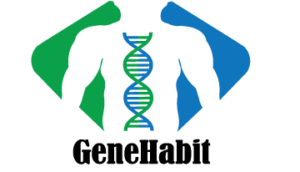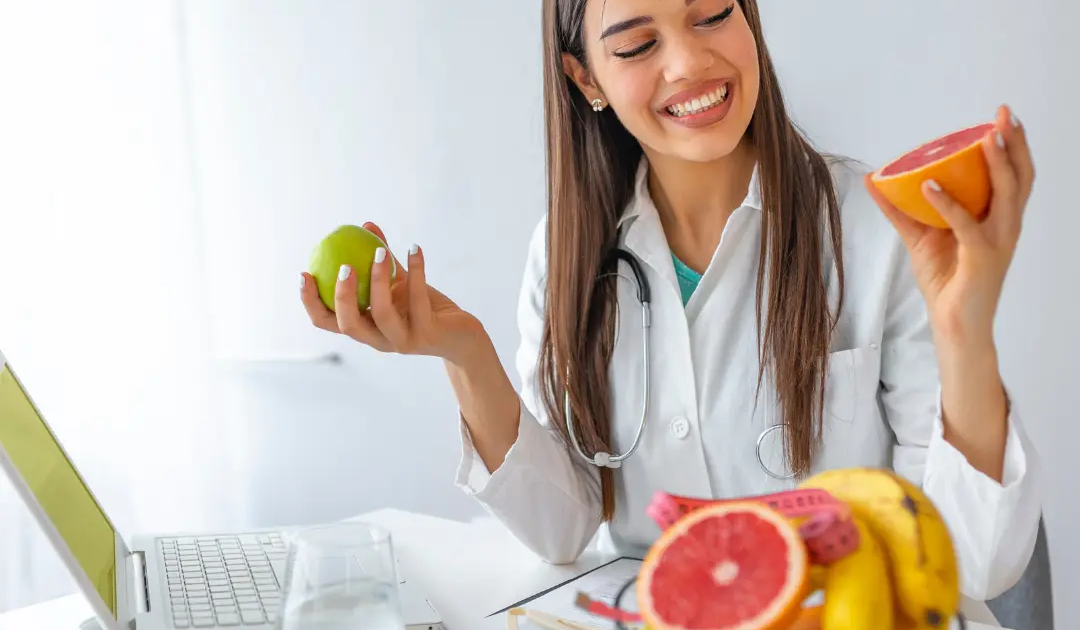What Deficiency Causes Hair Thinning: A Complete Guide
Introduction
Welcome to our guide on understanding what deficiency causes hair thinning. We all want thick, healthy hair, right? But, sometimes, hair loss happens. It can be due to different factors like vitamin deficiencies. In this guide, let’s look at how vitamins impact hair health. We’ll also talk about deficiencies causing hair thinning. Additionally, we’ll discuss dietary changes and supplements for hair growth. Lastly, we’ll share lifestyle tips for better hair health. Let’s dive in and unravel the secrets to maintaining a luscious mane.
What deficiency causes hair thinning?
Vitamins are key for healthy hair, growth, and preventing thinning. Adequate levels of vitamins are essential for the health of hair follicles, cell growth, and a strong immune system. Vitamin deficiencies can lead to a variety of hair problems, including hair loss, hair shedding, and brittle hair. Understanding vitamins’ role in hair health helps identify deficiencies for promoting hair growth.
The Essential Vitamins for Hair Growth
Certain vitamins are especially important for hair growth. Let’s take a closer look at them:
1. Biotin (Vitamin B7): Biotin is commonly known as the “hair growth vitamin.” It plays a vital role in maintaining healthy hair, skin, and nails. Biotin deficiency can contribute to hair thinning and brittle hair.
2. Vitamin E: Vitamin E is an antioxidant that helps improve blood circulation in the scalp, promoting healthy hair growth.
3. Vitamin A: Vitamin A supports the production of sebum, an oily substance that nourishes and moisturizes the scalp. Adequate levels of vitamin A are crucial for healthy hair growth.
4. B vitamins: Vitamins B12, biotin and folic acid, are essential for promoting hair growth. They help carry oxygen and nutrients to the hair follicles, supporting healthy hair growth.
5. Vitamin C: Vitamin C aids in the absorption of iron, a mineral important for hair growth. It also acts as an antioxidant, protecting hair follicles from damage.
6. Vitamin D: Vitamin D promotes healthy hair growth by supporting hair follicles. Low levels of vitamin D have been linked to hair loss and thinning.
How Vitamins Promote Hair Health
Vitamins play a crucial role in promoting overall hair health. Here’s how they contribute to maintaining a healthy mane:
1. Nourishing hair follicles: Vitamins give essential nutrients for growth. They ensure healthy hair.
2. Supporting cell growth: Vitamins aid cell division, promoting new hair.
3. Maintaining hair growth cycle: Vitamins regulate hair growth for consistency.
4. Boosting the immune system: Vitamins strengthen immunity for healthy hair.
5. Preventing hair shedding: Vitamins reduce shedding, keeping hair strong.
6. Promoting shiny, strong hair: Vitamins enhance hair health and strength.
What is the best vitamin for hair loss?
When it comes to combating hair loss, certain vitamins stand out as essential. Let’s explore them:
1. Biotin: Biotin is often considered the best vitamin for hair loss. It helps strengthen hair follicles and promotes healthy hair growth.
2. Vitamin D: Vitamin D deficiency has been linked to hair loss and thinning. Adequate levels of vitamin D are crucial for maintaining strong and thick hair.
3. Iron: Iron deficiency can lead to hair loss and reduced hair density. Including iron-rich foods in your diet or taking iron supplements can support hair health.
4. Vitamin E: Vitamin E enhances blood circulation, promoting hair growth and preventing hair loss. It also acts as an antioxidant, protecting hair follicles from oxidative stress.
5. Zinc: Zinc deficiency can contribute to hair loss and thinning. Including zinc-rich foods or taking zinc supplements supports healthy hair growth.
Exploring the Link Between Vitamin Deficiencies and Hair Thinning
Vitamin deficiencies can have a significant impact on hair health, leading to hair thinning and hair loss. In the following sections, we will delve into the signs of vitamin deficiencies. Understand the science behind vitamin deficiencies and hair loss.
Identifying the Common Signs of Vitamin Deficiency
Recognizing the signs of vitamin deficiencies is essential for addressing hair thinning. Here are some common signs to watch out for:
1. Hair shedding: Excessive hair shedding, especially when washing or brushing, can be a sign of vitamin deficiencies.
2. Brittle hair: If your hair feels dry, brittle, and prone to breakage, it may indicate deficiencies in essential vitamins.
3. Changes in hair texture and quality: Vitamin deficiencies can result in changes in hair texture. It includes dryness, roughness, and a lack of shine.
4. Changes in hair density: Pay attention to any changes in hair density. Thinning hair or a decrease in hair volume could be a sign of vitamin deficiencies.
5. Other symptoms: Vitamin deficiencies can show as premature graying or slow hair growth. Also, patchy hair loss might indicate a lack of vitamins.
The Science Behind Vitamin Deficiencies and Hair Loss
The connection between vitamin deficiencies and hair loss is backed by scientific research. Here’s a closer look at the science behind it:
1. Alopecia areata causes patchy hair loss, linked to vitamin D deficiency.
2. Telogen effluvium: Telogen effluvium is a condition characterized by excessive hair shedding. In some cases, vitamin deficiencies, such as iron deficiency, can trigger telogen effluvium.
3. Hair follicle cycle disruption occurs due to vitamin deficiencies, causing hair loss and thinning.
4. Adequate vitamin levels support a healthy immune system, reducing hair loss risk.
5. Optimal vitamin levels maintain hair follicles’ health, preventing hair loss.
Vitamin And Mineral Deficiencies That Affect Hair Health
Now, let’s delve into specific nutrients that can affect hair health.
Vitamin D and Its Impact on Hair Growth
Vitamin D plays a vital role in supporting hair growth and overall hair health. Low levels of vitamin D have been linked to hair loss and stunted hair growth. Vitamin D deficiency disrupts the hair growth cycle and can lead to hair thinning. Maintain vitamin D levels with sun exposure or vitamin-rich foods like fish. Consider supplementing for low vitamin D levels from limited sun.
The Crucial Role of Iron in Hair Health
Iron is an essential mineral for maintaining healthy hair. It plays a crucial role in delivering oxygen to hair follicles, supporting hair growth and strength. Iron deficiency, known as iron deficiency anemia, can lead to hair thinning and loss. To ensure optimal iron levels, include iron-rich foods in your diet, such as lean meats, spinach, and lentils.
Biotin Deficiency: A Silent Contributor to Hair Thinning
Biotin, also known as Vitamin B7, is a key vitamin for maintaining healthy hair, skin, and nails. Biotin deficiency can contribute to hair thinning, brittle nails, and skin issues. Symptoms of biotin deficiency include hair loss, dry or brittle hair, and a scaly red rash around the eyes, nose, and mouth. Biotin is in eggs, nuts, seeds, and veggies. For some, supplements may be needed for deficiency. If you think you lack biotin and notice hair thinning, seek medical advice.
Importance of a Balanced Diet on Hair Health
Maintaining a balanced diet is crucial for overall hair health and growth. A good diet helps hair growth with essential nutrients. Include varied foods for vitamins, minerals, and amino acids. This supports hair health and strength. Let’s explore the essential nutrients and their food sources for promoting hair health.
Essential Nutrients and Their Sources for Optimal Hair Health
To maintain optimal hair health, it is important to consume a balanced diet that includes essential nutrients. Here are some key nutrients and their food sources:
1. Biotin: Found in foods like eggs, nuts, and sweet potatoes, biotin is essential for healthy hair growth.
2. Iron: Lack of iron can lead to hair thinning and loss. Include iron-rich foods like lean meats, spinach, and lentils in your diet.
3. Vitamin D: Low levels of vitamin D have been linked to hair loss. Get enough sunlight or consume foods like fatty fish and fortified dairy products.
4. Zinc: Essential for hair growth and repair, include zinc-rich foods like oysters, beef, and pumpkin seeds in your diet.
5. Protein: Hair is made up of protein, so make sure you’re getting enough from sources like chicken, fish, and tofu for healthy hair growth.
Diet For Healthy Hair and Growth
Maintaining a healthy diet is crucial for healthy hair growth and overall hair health. Here are some dietary tips to promote healthy hair:
1. Include whole grains, fruits, and vegetables in your meals to provide a wide range of vitamins and minerals essential for hair health.
2. Incorporate fatty fish, like salmon, mackerel, and sardines, into your diet. This ensures an adequate intake of omega-3 fatty acids. Thus promote healthy hair growth and reduce hair thinning.
3. Stay hydrated by drinking enough water and consuming hydrating foods. Such as cucumbers and watermelon, as dehydration can negatively impact hair health.
4. Limit the consumption of processed and sugary foods. It can contribute to inflammation and oxidative stress, which can damage hair follicles.
5. Consider incorporating a hair growth supplement or multivitamin into your diet. Especially if you struggle to meet your nutritional needs through food alone.
Dietary Changes to Combat Hair Thinning
If you are experiencing hair thinning, making dietary changes can help promote hair health and growth. Here are some dietary changes that can combat hair thinning:
1. Ensure You Get Enough Vitamins: Make sure you’re getting the right amount of important vitamins like biotin, vitamin D, and iron. You can do this by eating a balanced diet with lots of different foods or by taking vitamin supplements.
2. Eat Foods Rich in Iron: Include foods that have a lot of iron in your meals, like red meat, lentils, and spinach. Iron is important for your body and helps prevent hair from becoming thin.
3. Eat Healthy Foods: Eat a variety of healthy foods like fruits, vegetables, whole grains, lean meats, and foods with healthy fats. These foods give your body the nutrients it needs to grow healthy hair.
4. Check Your Vitamin Levels: Sometimes, it’s a good idea to check how much of certain vitamins you have in your body. You can do this with a blood test. If you don’t have enough of a vitamin, you can change your diet to fix it.
5. Talk to a Doctor or Dietitian: If you’re worried about your hair or your diet, it’s a good idea to talk to a doctor or a dietitian. They can help you make a plan to eat better and get the vitamins you need.
Implementing Lifestyle Changes to Boost Hair Health
In addition to dietary changes, certain lifestyle changes can contribute to overall hair health. Let’s explore some important factors to consider:
The Importance of Regular Exercise
Regular exercise is not only important for overall health but also for hair health. Here’s why:
1. Better Blood Flow: When you exercise, it helps your blood move better all over your body, including your scalp. This can help your hair grow better and keep it healthy.
2. Feeling Less Stressed: Doing exercise regularly can help you feel less stressed out. When you’re less stressed, your hair is less likely to get thin and fall out.
3. Balancing Hormones: Exercise also helps to balance the hormones in your body. These hormones can affect how your hair grows and stays healthy.
4. Keeping Your Body Strong: When you exercise often, it can help keep your immune system strong. This is important for your hair because a strong immune system helps keep your hair healthy.
The Impact of Stress on Hair Health and Ways to Manage It
Stress can have a significant impact on hair health, potentially leading to hair thinning and loss. Here’s how stress affects your hair and ways to manage stress:
1. Oxidative stress: Too much stress can hurt your hair. It’s like when something rusts – it damages the parts that make hair grow, which can make you lose hair.
2. Managing stress levels: There are ways to handle stress. Things like meditation, exercise, talking to someone, and living a healthy life can help you feel better and keep your hair healthy.
3. Proper hair care: Taking care of your hair is important. Wash it gently, use conditioner, and don’t use too much heat or chemicals. Stress can make your hair weak, so it’s important to treat it kindly.
4. Seek support: Talk to someone who knows how to help, like a therapist or counselor. They can teach you ways to manage stress and keep your hair healthy.
Role of Natural Supplements in Hair Health
In addition to a balanced diet, natural supplements can play a role in promoting hair health. Let’s explore the potential benefits of natural supplements for hair growth and overall hair health.
An Overview of Effective Supplements for Hair Health
Certain supplements are known to promote hair growth and combat hair thinning. Here are some effective supplements to consider:
1. Biotin supplement is great for hair health and growth. It’s helpful for those with biotin deficiencies.
2. Vitamin D supplements support healthy hair growth and overall health. Low levels may require supplementation.
3. Iron supplements combat iron deficiency anemia, aiding hair health. They prevent thinning and loss.
Conclusion
Understanding why vitamins are important for hair is key. They help with thinning. If your hair keeps falling out a lot, it’s super important to talk to a doctor to get the right help. Eating good foods and taking special vitamins can help fix any problems with vitamins that might be making your hair thin. Make sure to be careful and ask experts for help when you’re dealing with hair thinning. Remember, fixing vitamin problems is just one part of making your hair healthy again.
At Genehabit, we offer the HairLife DNA test to address hair loss concerns. Our test provides personalized solutions and identifies vitamin deficiencies associated with hair loss.
Frequently Asked Questions
What vitamin are you lacking if your hair is thinning?
Vitamin deficiencies like Vitamin D, iron, biotin, Vitamin A, and E can lead to hair thinning. Proper diagnosis by a healthcare provider is crucial if experiencing hair loss.
What is the leading cause of hair thinning?
Genetics and hormonal imbalances are often the primary causes of hair thinning. Additionally, deficiencies in key nutrients like iron, zinc, biotin, and vitamin D can contribute. Other factors include stress, medical conditions, and excessive hairstyling. Consulting a healthcare professional can help determine the specific cause.
What illness causes hair thinning?
Certain health conditions like thyroid disorders (hypothyroidism, hyperthyroidism), alopecia areata, and nutritional deficiencies (iron deficiency anemia) can lead to hair thinning. Stress-related issues such as telogen effluvium may cause temporary shedding. Consult a healthcare professional for accurate diagnosis and treatment.
Which Vitamin Deficiency Causes Hair Loss?
Vitamin D deficiency, along with B vitamins like biotin and iron deficiency, can contribute to hair loss. It’s crucial to consult a healthcare provider for proper diagnosis and treatment to address the root cause of hair thinning.
Which vitamin deficiency causes hair thinning?
Vitamin deficiencies like Vitamin D, iron, zinc, and biotin can lead to hair thinning. A balanced diet rich in essential nutrients is crucial for preventing this issue. Consult a healthcare provider for accurate diagnosis and suitable treatment options.
Book a consultation
Simply fill in your details in the form below and we’ll get in touch with you shortly.





